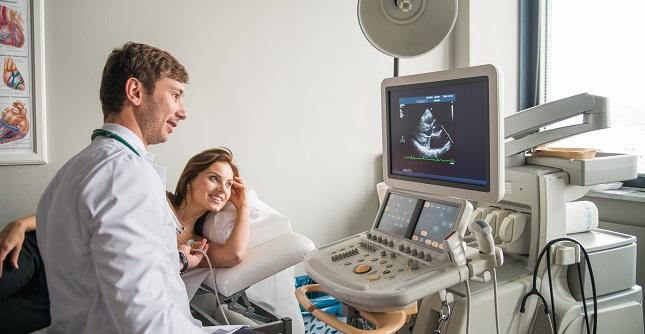Young Survivors of Childhood Cancer Have Higher, Earlier Risk of CVD Events
Earlier and more aggressive care is needed for these patients, who face risks beyond heart failure.

Children who survive cancer treatment are at increased risk of a variety of cardiovascular diseases at much younger ages than those with no cancer history, according to a new study, and this risk may be compounded if they develop diabetes or hypertension.
Over a median of 10 years, cardiac events occurred in young cancer survivors at a rate of 2.8% compared with 0.9% in matched, cancer-free controls (P < 0.001).
The study’s senior author, Paul C. Nathan, MD (The Hospital for Sick Children, Toronto, Canada), told TCTMD it is not uncommon for young adult survivors who develop symptoms suggestive of heart problems to see a physician or present to an emergency department only to be told they are too young to have such issues.
“Awareness amongst the survivors themselves and also amongst the medical community that childhood cancer survivors are at elevated risk of heart disease—and that it can happen a lot earlier than what we expect in the general population—is important,” Nathan noted.
Commenting on the study for TCTMD, Daniel A. Mulrooney, MD (St. Jude Children’s Research Hospital, Memphis, TN), said while the findings are largely confirmatory of previous studies, the research is unique in its use of population-based registry data rather than self-reported patient data, as well as the youth of the survivors, who had an average age of 24.
“We don’t typically think about cardiovascular risk factors in people this young,” he observed. “We certainly don’t think about treating hypertension in a 24-year-old, but in someone that young who is already at risk, now you’re compounding their risk by not treating it.”
Risk Extends Beyond Just HF
A number of studies have found increased rates of anthracycline-related heart failure in populations of childhood cancer survivors, but according to Nathan and colleagues, their study sought to fill in gaps that still exist in terms of understanding the full picture of CVD risk in this population of survivors.
In a research letter published online August 26, 2019 in Circulation, the researchers, led by Ashna Khanna, MSc (The Hospital for Sick Children), report data on 7,289 patients in a pediatric cancer registry who were under age 18 (median 7 years) when they were diagnosed and who survived 5 years. They were matched with data from 36,205 cancer-free controls.
We certainly don’t think about treating hypertension in a 24-year-old, but in someone that young who is already at risk, now you’re compounding their risk by not treating it. Daniel A. Mulrooney
In addition to a higher incidence of any cardiac event, CAD, and heart failure, cancer survivors also were more likely than controls to develop arrhythmias, pericardial disease, and valvular disease.
In multivariable analyses, factors associated with higher risk of CVD among survivors were diabetes preceding the CVD diagnosis (HR 3.0; 95% CI 1.6-5.8), exposure to ≥ 250 mg/m2 of doxorubicin-equivalent anthracycline chemotherapy compared with < 250 mg/m2 or no anthracyclines (HR 2.0; 95% CI 1.4-2.9), and relapse or subsequent cancer during childhood (HR 1.7; 95% CI 1.1-2.7). All three factors also were statistically significant predictors of HF.
Close, Early Surveillance Important
Given the known association between cancer therapies and increased risk of metabolic diseases such as diabetes, hypertension, and dyslipidemia, the researchers say it is important for physicians treating cancer survivors—even those who are young—to understand that “these modifiable risk factors appear to interact with cardiotoxic treatment exposures in a multiplicative manner to accelerate the progression of CVD and premature aging of the heart.”
Mulrooney agreed, noting that “we've typically said in the past that [these patients] need more aggressive management. I don't know if that's the right terminology or not, but they certainly need management of those comorbidities at a younger age than would typically be the case.”
Awareness . . . that childhood cancer survivors are at elevated risk of heart disease—and that it can happen a lot earlier than what we expect in the general population—is important. Paul C. Nathan
The findings also raise questions about the importance of diet, exercise, and lifestyle management in young cancer survivors. “It could potentially change the trajectory of this,” Mulrooney said. “Such a study has yet to be done, but it could make a big difference.”
To TCTMD, Nathan said the findings “add to a growing literature that says that the risks are not just exclusively heart failure [and] that pretty much any heart structure is potentially at risk in kids who have had cancer therapy.”
Studies such as this, he added, may help bridge gaps in communication between the oncology community and others who will care for these patients later in their life by highlighting the importance of close surveillance. Awareness also can help empower patients themselves to advocate for earlier, more aggressive care. Nathan said this is particularly important for survivors who had cancer at a very young age and need to be the ones to share that information with their primary care physician and others as they age.
L.A. McKeown is a Senior Medical Journalist for TCTMD, the Section Editor of CV Team Forum, and Senior Medical…
Read Full BioSources
Khanna A, Pequeno P, Gupta S, et al. Increased risk of all cardiovascular disease subtypes among childhood cancer survivors: population-based matched cohort study. Circulation. 2019;Epub ahead of print.
Disclosures
- Nathan and Mulrooney report no relevant conflicts of interest.


Comments